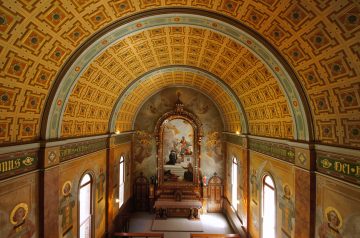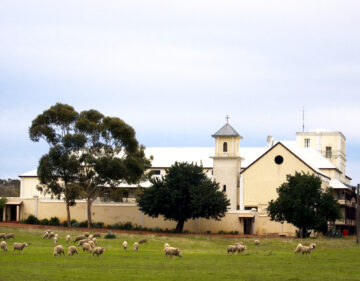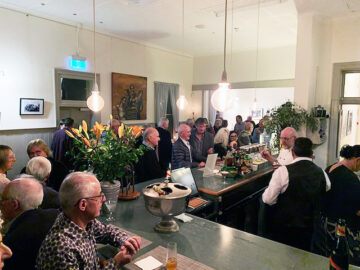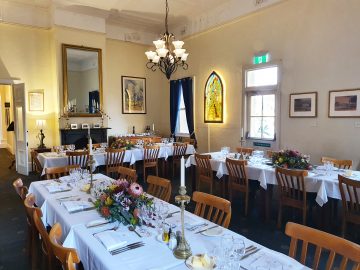Wednesday, 18th September 2019
Fr Anthony Lovis osb Homily and Eulogy
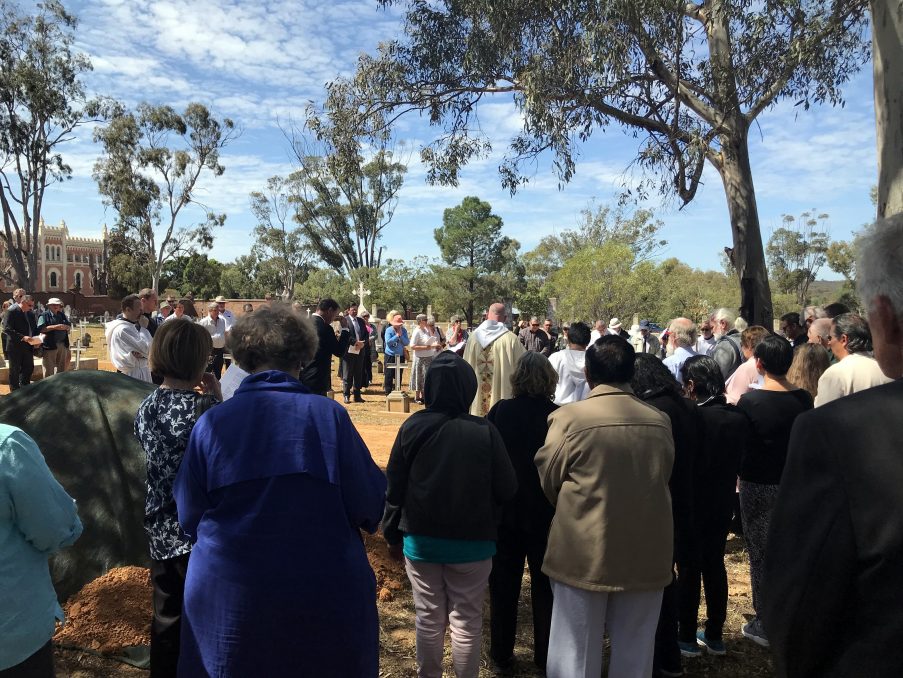
FR ANTHONY LOVIS OSB
REQUIEM HOMILY
The imagery we find in the first reading from the prophet Isaiah (35:3-10) is rather fitting as we ponder the reality of death – in this instance a monastic death. The transformation of the desert from an arid, life-threatening place to a fertile, life-supporting place is a common biblical image of salvation, and we could say it encapsulates the essence of the monk’s journey towards God – a journey of transformation. While on the one hand the desert is perceived as a place of dryness, temptation and fear, it can also be experienced as a place silence and solitude; a place where we can hear the gentle voice of God speaking to us in the wilderness of our hearts.
Although our faith assures us of the transformation of our lives through God’s promise of salvation, we do have a part to play in that dynamic relationship. For Fr Anthony, this was made evident in one of the promises he made on the occasion of his monastic profession – conversatio morum – the daily conversion of his life. While at times he (and every monk who makes such a radical promise) found this difficult, his promise of stability was a sure sign that he never gave up trying. The other promise Fr Anthony made at his profession was obedience. Since I was his abbot, I don’t think we’ll go there!
Seriously though, even if Fr Anthony did find obedience to his abbot a little challenging – and who wouldn’t? – perhaps he had a deeper understanding of obedience – the type of obedience St Benedict was on about in his rule – mutual obedience – that is, a desire to discern what is best for the whole community.
In verse 7 of the reading, Isaiah tells us there will be a highway in the wilderness, a road leading us to a better place, a place of everlasting joy. In his own unique way, Fr Anthony knew, like St Paul speaks of in the second reading (Philippians 3:7-11), that knowing Christ was his greatest value; the road that would lead him in joyful trust through any suffering and death to share in Christ’s resurrection. Fr Anthony’s jovial nature, his empathy, his recognition of the good in others, his moral values, his sense of justice, and most of all his love, were sure signs that he saw Christ’s resurrection as something we can experience now; that is to walk in the newness of life, which is a gift Christ gives us to sustain us till we share in the fullness of life after our death.
In the gospel (Matthew 6:25-34) Jesus is assuring us that God knows our needs and provides for them. This assurance does not however advocate passivity; that is, doing nothing and expecting that God will provide. Nor does it make a judgment on the faith of those whose daily reality is a desperate struggle to survive. The point is that when disciples’ attention is centred on seeking God’s reign and right relation with all creation, then those who have enough of life’s necessities do not become obsessed with the quest for material possessions. Rather they cooperate with God in actively providing for others. Although Fr Anthony could at times be rather preoccupied with the footy score and what we might be having for supper there is no doubt he was seeking God, because in that seeking he reached out to others in so many ways, most especially he listened to them with the ear of his heart.
In saying “do not worry” Jesus is encouraging us to make an attempt to let go of obsessive anxiety about subsistence or our fixated desires for possessions. Fr Anthony accepted that in the monastic tradition of holding all things in common he would be provided for and could let go of wanting more; and he did, because his true desire was for the kingdom. He did at times though worry about tomorrow, particularly in regards to his health. Be that as it may, he was a monk of faith with a deep conviction that, as his favourite spiritual writer Julian of Norwich attested – all will be well – and it is.
And so Fr Anthony, just as in every Mass you celebrated, you prayed for healing and wholeness, our last words to you, come from her:
Our soul’s continual searching pleases God greatly, for we cannot do more than search, suffer and trust. And this comes to fulfilment in everyone to whom it is given by the Holy Spirit. Through the Spirit’s grace, when it is his will, finding brings enlightenment. Our searching with faith, hope and love pleases our Lord, and finding pleases us and fills us with joy...it is God’s will that we go on searching until we see him. (Chapter 10)
Fr John Herbert OSB, Abbot
